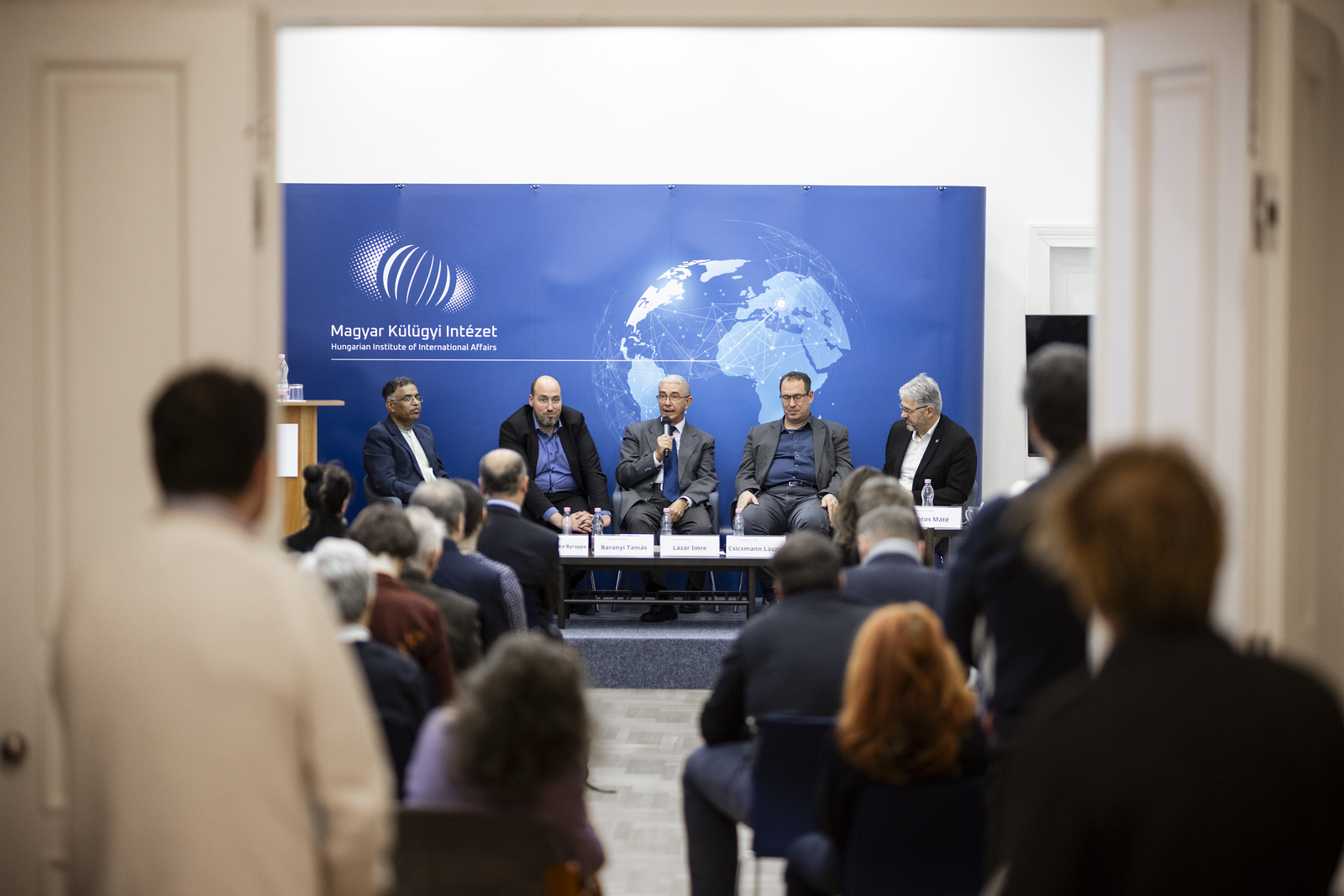In India, there is a tradition of non-alignment.
Subrahmanyam Jaishankar: The Path of India – India at the Gateway of Global Power
Book launch at the Hungarian Institute of International Affairs
The second day of the event series celebrating the 75th anniversary of diplomatic relations between Hungary and India at the Hungarian Institute of International Affairs (HIIA) began with the book launch of Subrahmanyam Jaishankar, India’s Foreign Minister.
At the event, Subrahmanyam Jaishankar greeted the participants via video message. He stated that the most important message of “India’s Path – India at the Gateway of Global Power” is that the current processes of modern globalization can be reversed, and the nation-state remains the most important player on the global stage. According to the Indian Foreign Minister, achieving a rebalancing is the goal because, as he expressed, the world is no longer willing to tolerate over-concentration.
Regarding the publication of the book by MCC Press, the HIIA organized a roundtable discussion outlining the key points of “India’s Path” with László Csicsmann, professor at Corvinus University of Budapest, Tamás Baranyi, HIIA’s Director for Strategy, Ramachandra Byrappa, HIIA’s Senior Research Fellow, Imre Lázár, former diplomat and Vice President of the Hungarian-Indian Friendship Society, along with the moderator, Máté Botos, Managing Director of MCC Press.
László Csicsmann emphasized that Jaishankar makes it clear that India needs a risk-taking foreign policy to achieve something as an emerging power in the evolving global order. He pointed out that there has been a huge change in Indian rhetoric in the past decade, while the current Indian government has not departed from the foreign policy of previous governments, it has still noticeably risen, and its foreign policy has become more professional. Many accuse India of being an inadequate ally; however, India’s foreign policy has a tradition of non-alignment, which is now evolving into a multi-directional commitment. “Jaishankar is a global-level foreign policy thinker,” added Csicsmann.
Imre Lázár stated that when it comes to India, one must always consider that it is a civilization with thousands of years of uninterrupted history. “India cannot be understood and known without being aware of its past. Throughout its history, India has exerted influence on a significant part of the world, which is reflected in its political thinking,” emphasized the expert.
Tamás Baranyi emphasized that democratization in India means surpassing Western structures and, at the national level, embedding the massive masses into politics in increasingly broader layers. “For India, the relationship with the past and identity is becoming increasingly important in terms of current Indian changes. Jaishankar sees the changes very realistically: India must constantly be aware in the global struggle and should not take sides; instead, it must creatively manage ad hoc coalition formations,” he added.
According to Ramachandra Byrappa, if India wants cooperation with the rest of the world, it needs strong, clear, and raw thoughts formulated.

